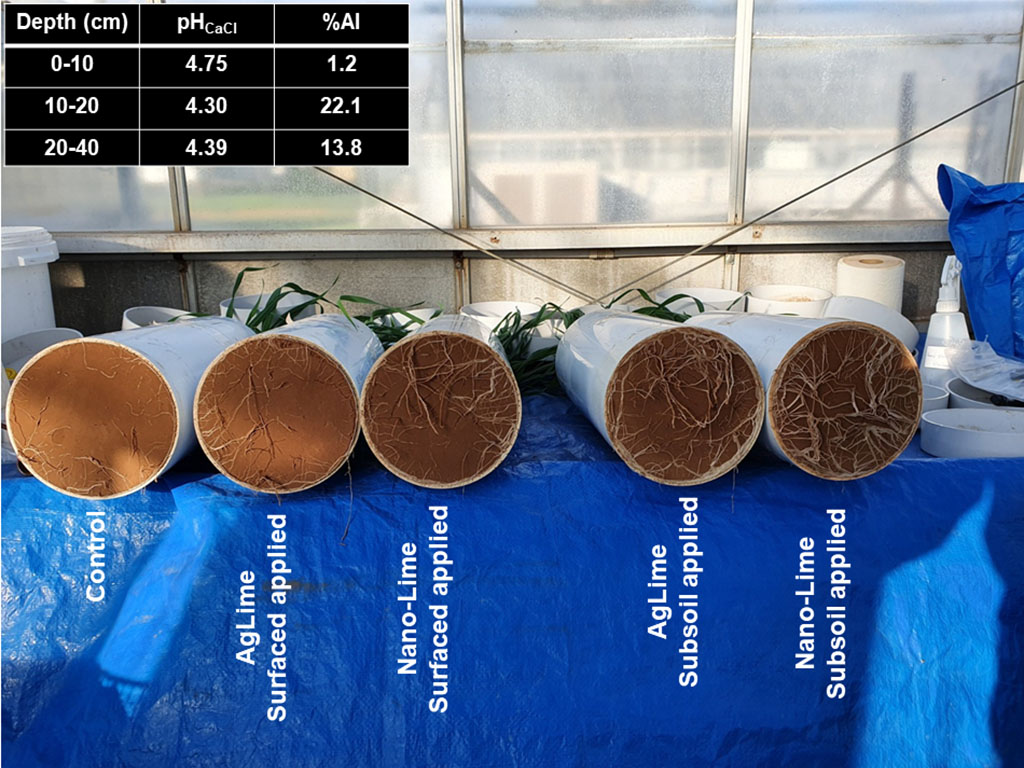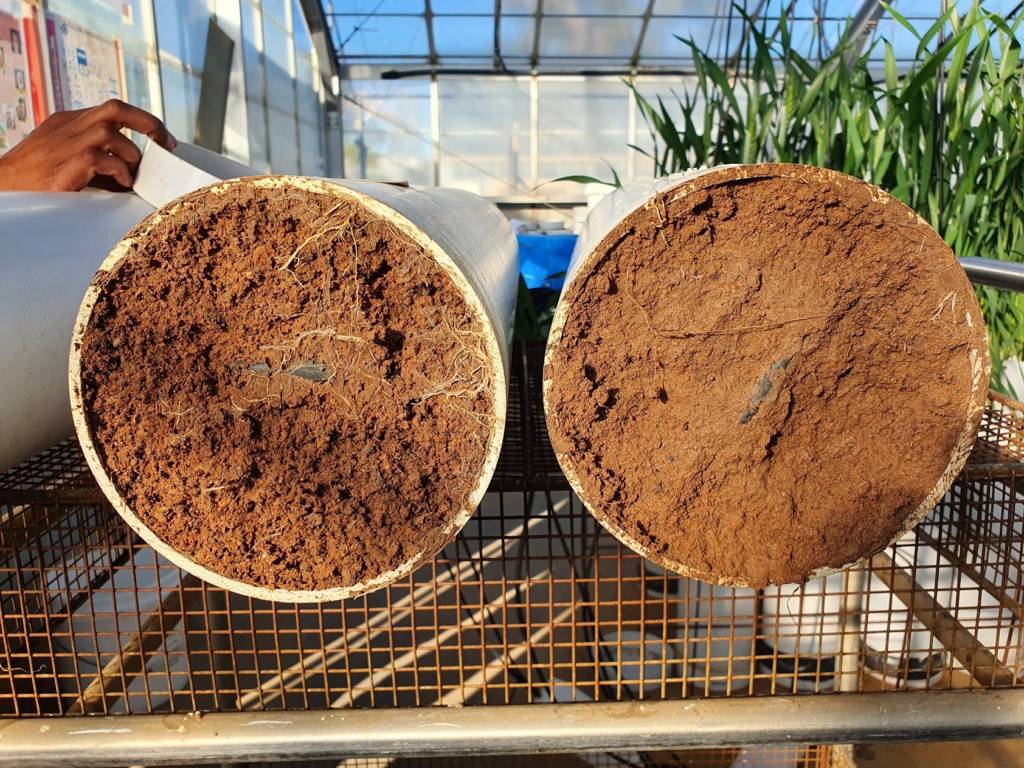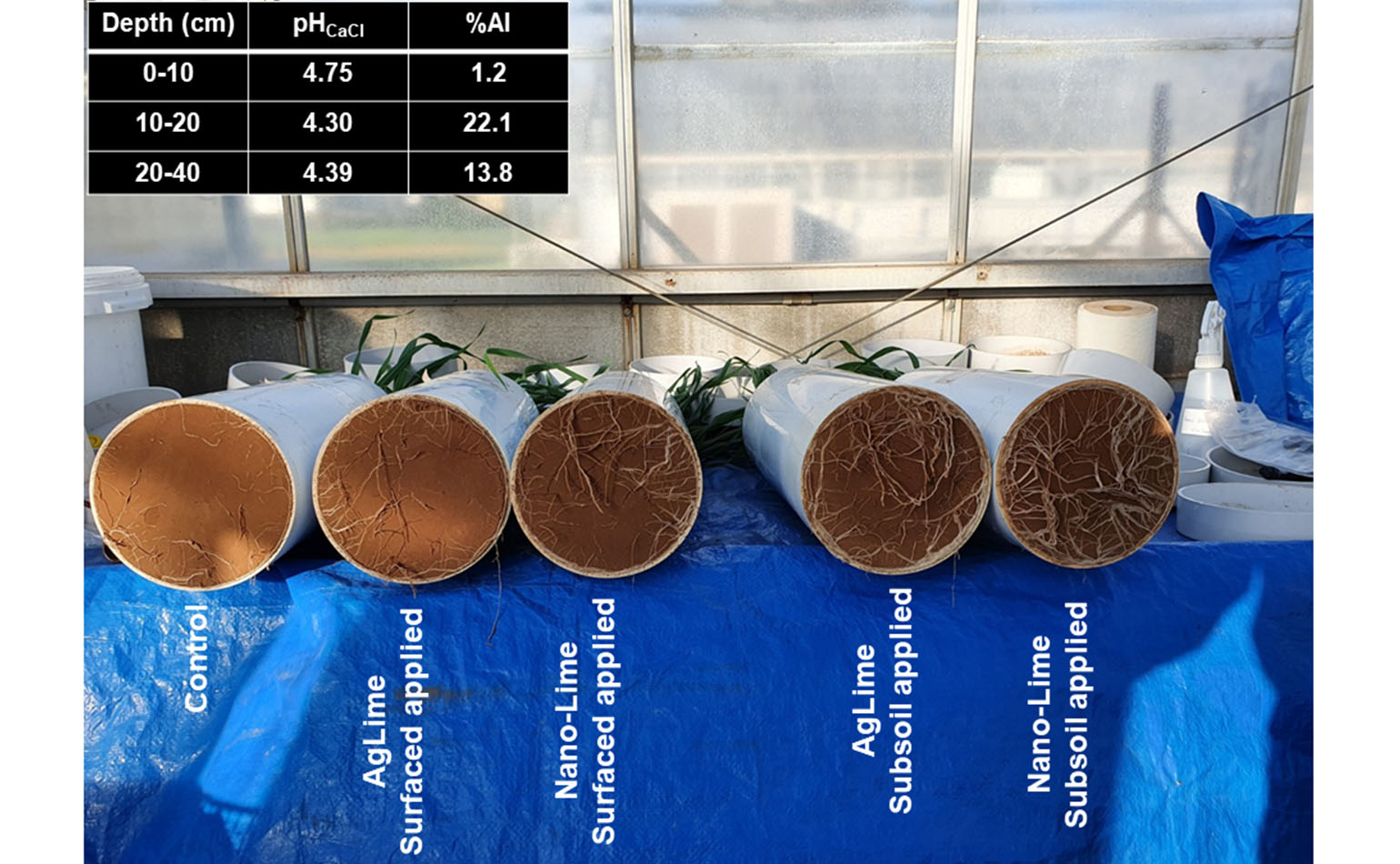Project: New products for subsoil constraints
Project Leader: Dr Ehsan Tavakkoli, NSW Department of Primary Industries
The majority of Australian soils have constraints such as sodicity, acidity, or salinity that limit agricultural productivity. These limitations in the subsoil can stop plants accessing and extracting stored water and nutrients, which reduces yields and costs growers money.
The current use of chemical solutions to ameliorate these constraints is a critical part of the management practice to maintain the productivity and profitability for farmers, yet the effectiveness of these practices is extremely low.
Although gypsum and lime are widely used as the main soil amendments in addressing soil sodicity and acidity, they are low soluble salts with minimum mobility which reduces their effectiveness to ameliorate subsoil constraints.
This project is using recent advances in chemical engineering techniques and innovative organic based amendments to more effectively address subsoil constraints. The project team, led by Dr Ehsan Tavakkoli of NSW Department of Primary Industries, is developing a new generation of submicron organic-based amendments with the ultimate aim of correcting subsoil constraints and thereby increasing crop production.
Project Update
The project team has made significant progress in developing new organic-based gypsum and lime products. They have developed a specific type of micronized biochar and silicon polymer which carries lime and gypsum minerals. The characterisation of these products is well underway. This will be followed by soil-based studies.
A preliminary visual observation of using novel amendments demonstrated a significant improvement in root accumulation and crop water use in soil columns when treated with submicron sized amendments.

The photo above shows how surface or deep applied lime improved root proliferation in an acidic subsoil.

This photo shows the effectiveness of polymer-based product and organic amendment to ameliorate sodic subsoil compared with a control.
Next steps:
Pot and field trials will be used to asses the agronomic efficiency of submicron organic-based amendments. This will use advanced soil chemistry and plant physiology techniques.
A range of key plant species such as wheat and canola, with contrasting tolerance to various soil constraints will be used and their response will be compared with conventional amendments serving as control treatments.
Participants:
NSW Department of Primary Industries
University of Southern Queensland

